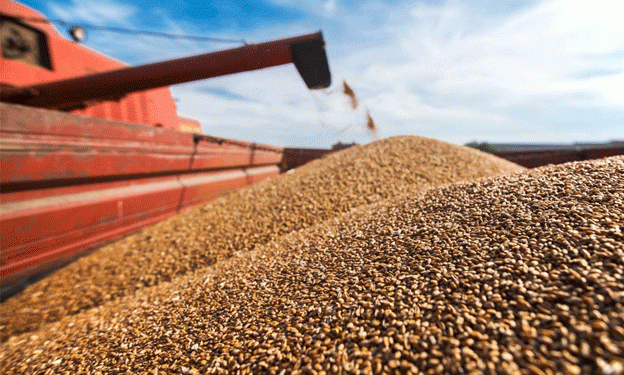Azerbaijan’s State Reserves Agency has initiated a significant program for the 2024 harvest season, focusing on sourcing high-quality domestic wheat. This article delves into the new regulations, quality standards, and the implications of this initiative for local wheat producers and the broader agricultural sector.
Overview of Azerbaijan’s Local Wheat Supply Program
The State Reserves Agency of Azerbaijan has announced the commencement of a local wheat supply program for the 2024 harvest season. This initiative will run until September 1, 2024, and seeks to procure high-quality domestic food wheat from local producers to meet the country’s food security needs and manage the State Grain Fund.
Key Aspects of the Local Wheat Supply Program
- Quality Standards for Wheat:
- Regulations: To participate in the program, food wheat must adhere to the quality standards detailed in Appendix No. 1 of the “Regulations for the Storage and Use of the State Grain Fund,” which was approved by the Azerbaijani Cabinet of Ministers on July 7, 2009. These standards are in line with the Law “On Food Safety” and include criteria for grain purity, moisture content, and the absence of contaminants.
- Quality Verification: Accredited laboratories will evaluate the wheat to ensure it meets the established quality criteria. This step ensures that only wheat that fulfills the specific requirements will be accepted for procurement.
- Procurement Process:
- Monthly Pricing: The price for the supplied food wheat will be determined on a monthly basis, using the average import statistics from the previous month as a reference. This pricing mechanism aims to reflect market conditions and provide fair compensation for local producers.
- Transportation Costs: Producers will bear the costs of transporting the wheat to the designated receiving points. This aspect of the program emphasizes the responsibility of producers in the logistics chain of the wheat supply.
- Regulatory Compliance:
- Legal Requirements: All wheat supplied under this program must meet the criteria outlined in the “Regulations for the Storage and Use of the State Grain Fund” and comply with the Law “On Food Safety.” These regulations ensure that the wheat is safe for consumption and aligns with national food safety standards.
Recent Trends in Azerbaijan’s Wheat Sector
Azerbaijan’s wheat sector has been evolving in recent years. According to recent reports:
- Wheat Production: Azerbaijan’s wheat production has seen a gradual increase, with a focus on enhancing domestic production to reduce reliance on imports. In 2023, the country harvested approximately 1.6 million tonnes of wheat, a significant rise from previous years.
- Import and Export Dynamics: Azerbaijan has been working towards reducing wheat imports, which historically accounted for a significant portion of the country’s wheat supply. The aim is to increase the self-sufficiency of the national wheat sector.
- Food Security Initiatives: This local wheat supply program is part of a broader effort to strengthen food security in Azerbaijan. By focusing on domestic production and adhering to stringent quality standards, the government aims to stabilize the wheat market and ensure a reliable food supply for the population.
The Importance of the Program for Local Farmers and Agronomists
This initiative offers several benefits and challenges for local farmers and agronomists:
- Opportunities: Farmers have a structured market for their wheat, with clear quality standards and a defined procurement timeline. This initiative provides a stable demand for their products and potentially higher returns if the quality standards are met.
- Challenges: Producers must manage transportation costs and ensure their wheat meets the stringent quality requirements. Agronomists will need to focus on maintaining high-quality standards and managing the logistical aspects of wheat production and delivery.
Azerbaijan’s 2024 local wheat supply program represents a significant step towards enhancing food security and promoting domestic wheat production. By setting rigorous quality standards and establishing a transparent procurement process, the State Reserves Agency aims to support local farmers and improve the country’s self-sufficiency in wheat.
For farmers, agronomists, and agricultural engineers, understanding these new regulations and preparing for the program’s requirements will be crucial for leveraging this opportunity and contributing to the national food security goals.
Error




